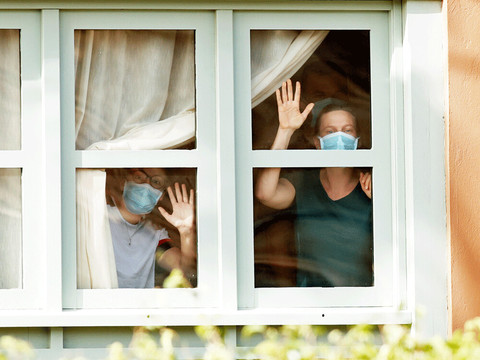[ad_1]

The recession set to hit Europe after the pandemic will help organised crime penetrate legitimate business and recruit out-of-work specialists, the EU’s joint police agency, Europol, has warned.
“Businesses operating in sectors suffering particularly negative economic pressures, such as the hospitality, catering and tourism sectors, are becoming more vulnerable to criminal infiltration,” it said in a report out on Monday (12 April).
“Criminals may increasingly attempt to launder money through dormant companies, buy out financially affected cash-intensive businesses, or invest in property in the construction sector,” it added.
“Heightened pressure” on banks could lead to weaker due-diligence on financial crime, while impoverished firms and even local authorities will be more likely to turn a blind eye to practices such as illegal waste-disposal services, including of the mountains of discarded corona-linked protective equipment.
At the same time, financial and legal specialists, as well as young people with IT skills, who cannot find legitimate work will be more vulnerable to criminal recruitment, Europol warned.
“Young people with advanced technical skills who are unable to gain employment in their chosen fields of expertise may turn to crime in order to finance themselves,” it noted.
And people in struggling sports clubs might be more tempted to fix matches to help illegal gambling schemes.
The Europol survey, the largest of its kind in the agency’s history, noted that the pandemic had already created new opportunities for criminals.
“The Covid-19 pandemic has acted as a catalyst for the emergence of new online fraud schemes” it noted, with cyber-criminals turning to corona-themed scare stories, for instance, designed to make people more willing to click on malware links in bogus emails.
The spike in use of online retail means there are so many small parcels being delivered that it is easier to send cannabis through the post without detection.
The sudden shift to teleworking “has made many corporate networks more vulnerable to cyberattacks”, Europol noted.
Some egregious crimes, such as live-streamed online child abuse, are on the rise.
And “children have been spending more time online unsupervised, making them more vulnerable to exploitation”.
Scams including fake protective equipment, fake medical services designed to help criminals enter people’s homes, and sales of counterfeit vaccines are also increasing, Europol warned.
In one silver lining, home burglaries are down because people are staying put in lockdowns.
But there was little good news in the survey, which also said sales of illegal drugs and use of violence by criminals were higher than ever.
“Unprecedented quantities of cocaine are trafficked to the EU from Latin America … [and] the purity of cocaine at retail is at the highest level ever recorded,” Europol said.
“EU-based criminals orchestrate the large-scale indoor and outdoor cultivation of cannabis in every member state” and “European producers of [synthetic drugs, such as ecstasy] … are among the most prolific criminal entrepreneurs worldwide,” it added.
Violence
At the same time, use of violence by criminals “appears to have been increasing in terms of the frequency of use and its severity”.
“Criminals use violence indiscriminately and target victims without regard for their involvement or standing, often accepting harm to innocent bystanders,” by using guns and explosives in public places, Europol said.
Some gangs specialise in offering violence as a “service” to others.
“Violence is casually discussed and negotiated between criminals seeking violence as a service. The commission of violent acts is increasingly becoming a stand-alone business,” it said.
“Criminals kill innocent victims in the crossfire, murder journalists and lawyers in direct attacks on our democracies,” EU home affairs commissioner Ylva Johansson said at the report’s launch in Lisbon.
“We are at breaking point … the impact [of organised crime] on the lives of citizens, on the economy, on the rule of law is too big,” Europol director Catherine De Bolle also told the AFP news agency.
But at the same time, poor asset-recovery regimes in Europe, mean that “more than 98 percent of the proceeds of crime [are] remaining in the hands of criminals”, Europol’s report noted, amid an appeal for legal reform on the issue.
[ad_2]
Source link